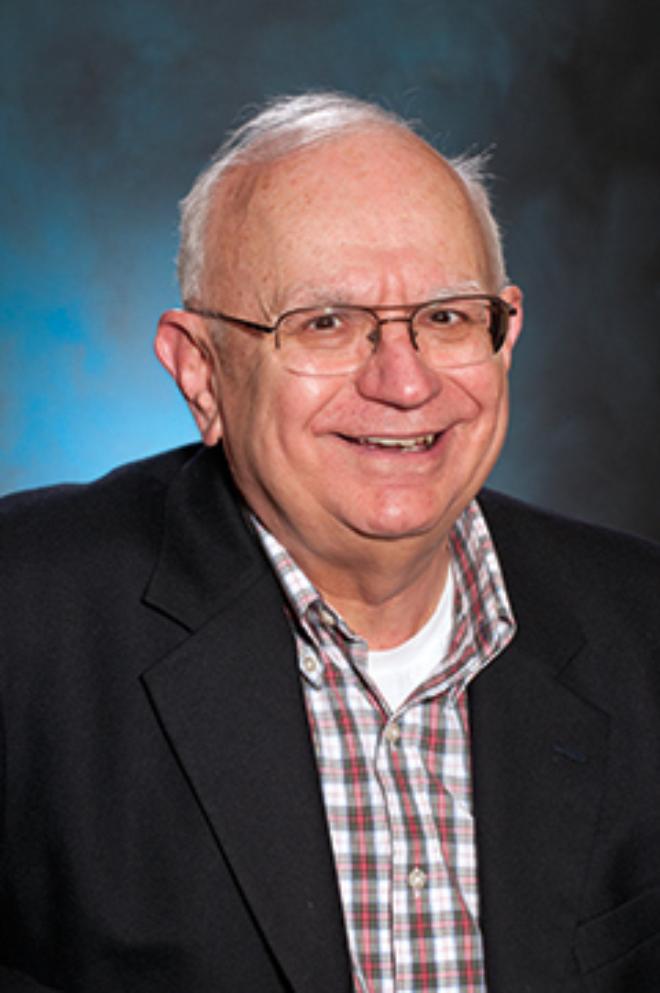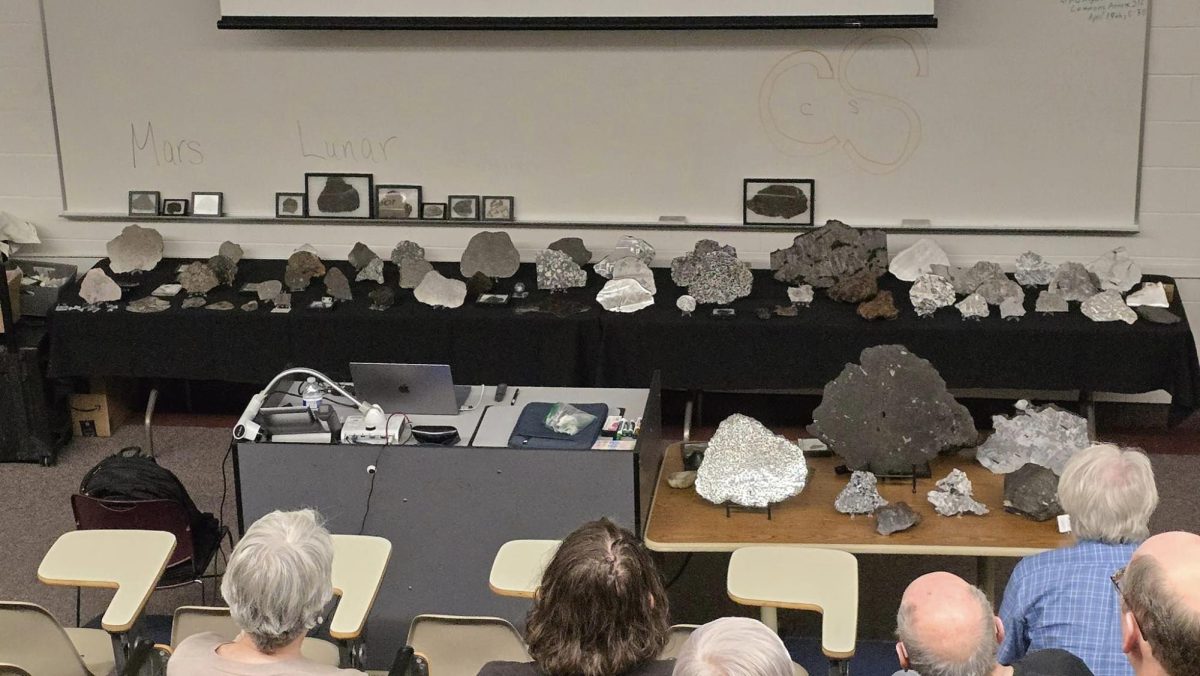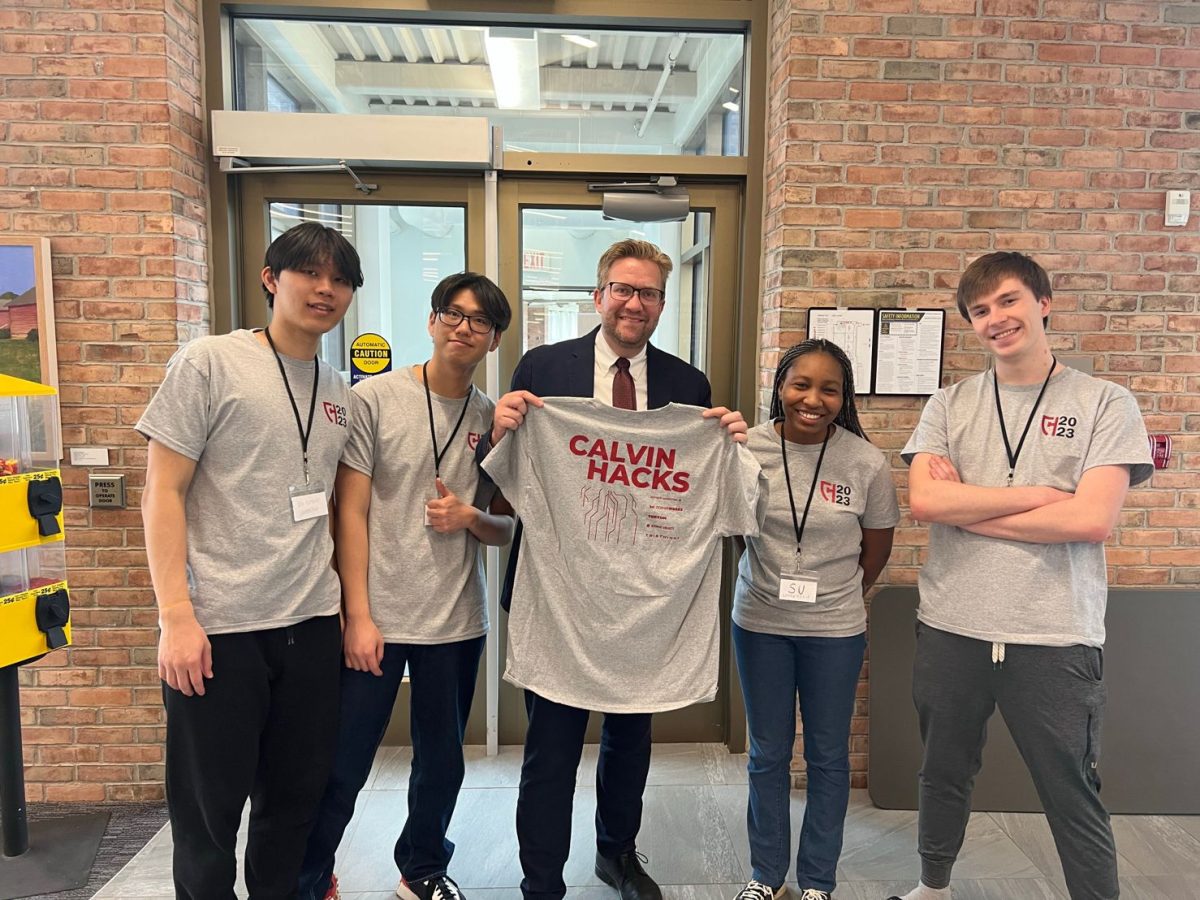In the spring of 1998, Calvin University — Calvin College at the time — saw the establishment of its chemical engineering concentration, a groundbreaking initiative led by Wayne Wentzheimer, the program founder and former industry veteran. Over 25 years and 225 graduates later, the program still stands as a monument to Calvin’s pioneering efforts in STEM education among Christian higher-learning institutes.
It started with a few phone calls made in the summer of 1996. Wentzheimer recalled, “I said ‘OK, I’m going to see what can happen.’ So I made three phone calls, one to the president, one to the provost, one to the dean and said ‘Can I get 15 minutes of your time?’”
When Wentzheimer made those fateful phone calls, he was no stranger to chemical engineering programs. Wentzheimer was the head of the chemical engineering department at Drexel University’s Evening College –– which has since become the Goodwin College of Professional Studies –– in Philadelphia, Pennsylvania.
Additionally, Wentzheimer had a few decades of industry experience under his belt. Wentzheimer’s career in research and development (R&D) spanned over 30 years, including a long stretch of time spent at, according to Wentzheimer, “one of the most innovative [companies] in the industry” –– ARCO Chemical. However, a changing corporate landscape made Wentzheimer consider other opportunities.
“[ARCO Chemical] became very conservative, and I was in R&D. Well, if you’re conservative, you don’t want to take the risk of R&D” Wentzheimer said.
According to Wentzheimer, another reason for founding the concentration came through a personal connection – Wentzheimer’s daughter. During her freshman year at Calvin, she met an engineering student at Calvin who would later become her husband. Wentzheimer said he observed a stark difference between his son-in-law’s experiences at Calvin and Wentzheimer’s experiences with his own education.
“Basically, [it was] the care of the faculty, for him, compared to mine. I had an outstanding engineering education at Drexel and University of Pennsylvania, but it was a different context,” said Wentzheimer.
It was with these things in mind that Wentzheimer began his work funding Calvin’s chemical engineering department.
“The president said ‘yes’, the provost said ‘I’m sorry, I’m out of town.’ The dean was available, so I met with him and made my pitch,” Wentzheimer recalled.
After the pitch was made and the idea was given the greenlight, Wentzheimer went forward to produce a formal proposal. “I started working with the chairman of the engineering department to write a typical proposal, which was 30 or so pages,” said Wentzheimer.
Wentzheimer and Lambert Van Poolen –– the engineering department chairman –– would periodically meet to revise and improve the proposal. As a non-Calvin graduate, Wentzheimer noted his struggle “trying to write something not knowing the culture that was there.”
“Fortunately, this chair at the time had worked with chemical engineers throughout his career, so he could understand it in a good way,” said Wentzheimer.
The proposal to create Calvin’s chemical engineering program was approved in 1998 –- about two years after Wentzheimer made those first couple of phone calls — and Wentzheimer moved from Drexel to Calvin to teach. The first chemical engineering course was offered in the spring of 1999. Today, Wentzheimer still teaches chemical engineering at Calvin and plans to continue doing so.
Since its inception, the chemical engineering concentration has grown and evolved, with over 225 graduates to date. Wentzheimer emphasized the fact that “personal attention [and] small classes matter” and that these factors contribute to the success of Calvin’s chemical engineering program. He mentioned that the feedback from students who go on to graduate school indicates that they compete well with students “from MIT, [University of] Michigan, and et cetera.”
Jennifer and Jeremy VanAntwerp –– who joined the program after its founding –– have been instrumental in its development since, according to Wentzheimer.
“I came one year, they came the next year, and there were others involved, but basically it was the three of us that put the details together,” said Wentzheimer.
Especially in applications that can have massive environmental impacts –– like petroleum refineries –– it’s imperative that chemical engineers have a strong awareness of ethics and environmental care, according to Wentzheimer. “The chemical and petroleum industry is very important, particularly to do it right environmentally, that there should be Christian engineers out there.”
This story has been updated to correct the name of the department chair in 1997-1998. Chimes regrets this error.







Karen Wentzheimer DeHeer • Nov 15, 2023 at 6:46 pm
As the daughter that was mentioned, I couldn’t be prouder of my dad. He has taught with love and patience, and a true desire to provide a solid foundation for all his students. He has remained in contact with many of the ChemE graduates and enjoys sharing where they’ve landed in their careers.